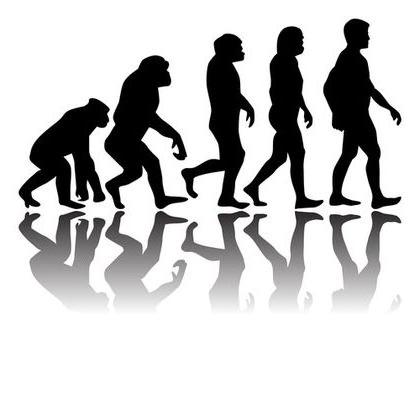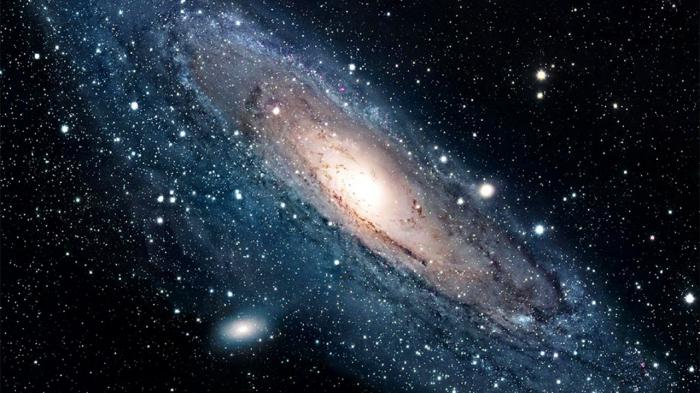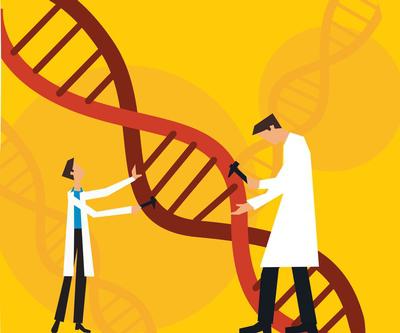Now, both out of place and out of place, they are talking about evolution. But this is a scientific term, and it must be applied carefully. It is widely believed that evolution is progress. That is, this phenomenon is understood as the progressive development of something from simple to complex, from worst to better. In contrast to evolution, there is the concept of "degradation", which is a regression, a slide to the primitive. Initially, this term was used with respect to the development of biological species. However, now its scope has expanded. We can talk about the evolution of society, human rights, other concepts, bearing in mind their progressive, slow development and improvement. It would be a mistake to think that the term was coined by Charles Darwin. In fact, in his book “On the Origin of Species,” he simply used the word “evolution” several times, which was used by embryologists before him. What does the term “evolution” really mean? Let's figure it out.
Origin of the term
Strictly speaking, the Latin word evolutio translates to deployment. We can say that evolution is the movement of organic matter and energy in time. The fact that all living things are developing, was guessed in ancient times by philosophers of the Miletus school. For example, Anaximander rightly believed that the animals were at first waterfowl and only then went on land. Empedocles also not without reason believed that only individuals most adapted to environmental conditions survive in nature. The great world religions for many centuries suppressed any opportunity to even stutter that animals and plants can evolve. They believed and claimed that God originally created everything visible as it is now. Since the Creator of the Universum is perfect, he did not need to create species of plants and animals in need of development. And man, Adam, He created already at the stage of homo sapiens. The first modest voices that biological species could mutate and generate others were heard only at the end of the 16th century. In 1751, the French naturalist Maupertuis wrote that organisms can mutate as a result of mutations accumulated over many generations. And Erasmus Darwin (Charles's grandfather) put forward the theory that all warm-blooded animals came from one microorganism.

Evolution and Embryologists
The first to speak about this phenomenon were doctors studying fetal development. It turned out that the embryo goes through several stages in the process of its growth and formation. From a simple fertilized egg, it turns into an organism ready for independent life activity. Moreover, in this development, the embryo goes through the stage of existence with gills. For the first time this term was described and characterized in 1762 by S. Bonnet. As applied to the embryo, evolution is a gradual and, most important, regular transition from one phase of development to another.
Darwin's contribution
The great British naturalist scientist rethought the previously used term and applied it to all life on Earth. And in fact: if a child’s embryo has gills at a certain stage of its development, then why not assume that it simply takes nine months to follow the path that all of humanity has taken for millions of years? In the work “The Origin of Species,” Darwin indicated that the mechanisms of the appearance of new traits along with the hereditary properties and parameters of the organism remain unknown. The scientist tried to explain them in the "Temporary theory of pangenesis." Natural conditions create a field for natural selection. Only those individuals who manage to adapt to their environment survive. They transmit their distinctive (new) traits to descendants, while unsuccessful individuals die out. It turns out that biological evolution is a natural process in which living organisms through natural selection and the desire for adaptation change, mutate. Thus, the scientist led the scientific community to the conclusion about the origin of man from the animal world. It should be said that this gave rise to heated debate, which does not stop even now.

Hugo de Vries contribution
This Dutch scientist-botanist, who lived at the turn of the 19th and 20th centuries, introduced the term “mutations” into scientific circulation. He rethought Darwin 's theory of evolution and supplemented it with the achievements of geneticists. He proved his hypothesis by the example of the wild-growing donkey Lamarck. If Darwin evolution is a slow, progressive, accumulating from one generation to another development, then in Hugo de Vries, changes occur suddenly, in connection with “useful” mutations. These transformations give either an impetus to the formation of a new breed (which explains the diversity of wildlife), or to a change in the whole species. The revolutionary nature of such transformations in the organisms of the population gave rise to the theory of saltationism (from the Latin word salto - jump). In the 20-30 years of the twentieth century, scientists bridged the gap between the Darwinian theory of progressive progress and the abrupt changes of Frieze and, supplementing their achievements with Mendel’s conclusions on heredity, created a new doctrine. It can be described as a modern evolutionary synthesis.

The essence of the concept
Thus, it is safe to say that evolution is development. Whatever we use this Latin word for, it should indicate improvement, improvement, progress. The reverse movement from complex to simple, "folding" in social relations is called degradation, decline. As for the biological species, such a regression is fatal for him. He leads to his extinction. Paleontology knows thousands of examples of “dead ends” in world evolution. And in relation to human societies? It is known that earlier in the territory of modern Yakutia there was a developed civilization of Diring Yuryakh. The same examples of regression can be observed in relation to law or economic relations in a particular society. The restriction of freedom of speech or the total violation of human rights in the state indicates its latent extinction.
What is needed for a biological population to evolve
And yet, what driving force makes a living organism mutate and create a new kind of creature? We know the breeds, for example, of some fish that have remained unchanged for millions of years. In order for revolutionary improvements of the whole species to occur, it is necessary that evolutionary factors are present . This is primarily intraspecific competition, which leads to natural selection, and genetic drift. If a population exists in a favorable environment, as many individuals are born as can survive on a given food base, and while the animals are isolated from other species of their own, then their genotype is more or less the same. This species does not need to adapt, mutate and evolve. But if environmental conditions change, or there is a surge in fertility, competition between individuals occurs - one of the reasons for the change in species. The most powerful and fittest take food from their weak counterparts and, against the background of their destruction, leave their genotype in the offspring. And heredity, another factor of evolution, reinforces “useful” changes, mutation, as a species trait.
Are people the pinnacle of development?
Anthropogenesis, or human evolution, is a long and mysterious process, as a result of which Homo sapiens appeared. He stood out from the environment of other hominids about two million years ago. What happened at that time in Africa that the great apes were forced to leave the jungle and move to the savannah, learn to walk on their hind limbs, make tools, subdue fire? Human evolution went a completely different way than in animals. If the latter changed to adapt to the surrounding nature, then people invented ways to adapt the conditions of the world to their needs. On the path of evolution of Homo sapiens there were also their own “dead end branches" of development. For example, homo erectus or Neanderthal.
Is there evolution in society?
This concept also excites the minds of scientists. Especially when it comes to progress and modernization. Can evolution be said to be a social process? As for scientific and technological progress, we can confidently state that there is one. People learn the laws of this world. They master new technologies and with their help create more and more advanced tools. But on the example of civilizations, not everything is so smooth. After all, society is a kind of macro-organism. It can also mutate, mutate. If it is open to "new genetic infusions" - it will develop. If it chooses the path of self-isolation, then it is doomed to degradation. Social evolution is manifested not only in the progress of technology, but also in the development of institutions and law.
Revolution and evolution
This ratio of slow, progressive and spasmodic, abrupt changes in society has long interested sociologists and political scientists. Speaking about the evolution in society, it should be noted that the most dramatic changes occur as a result of radical upheavals. Sometimes these revolutions are bloodless. For such a development of events, the desire of the government to go for reforms is necessary. If the ruling class only wants to stay in power by suppressing protest moods, a social explosion is inevitable.